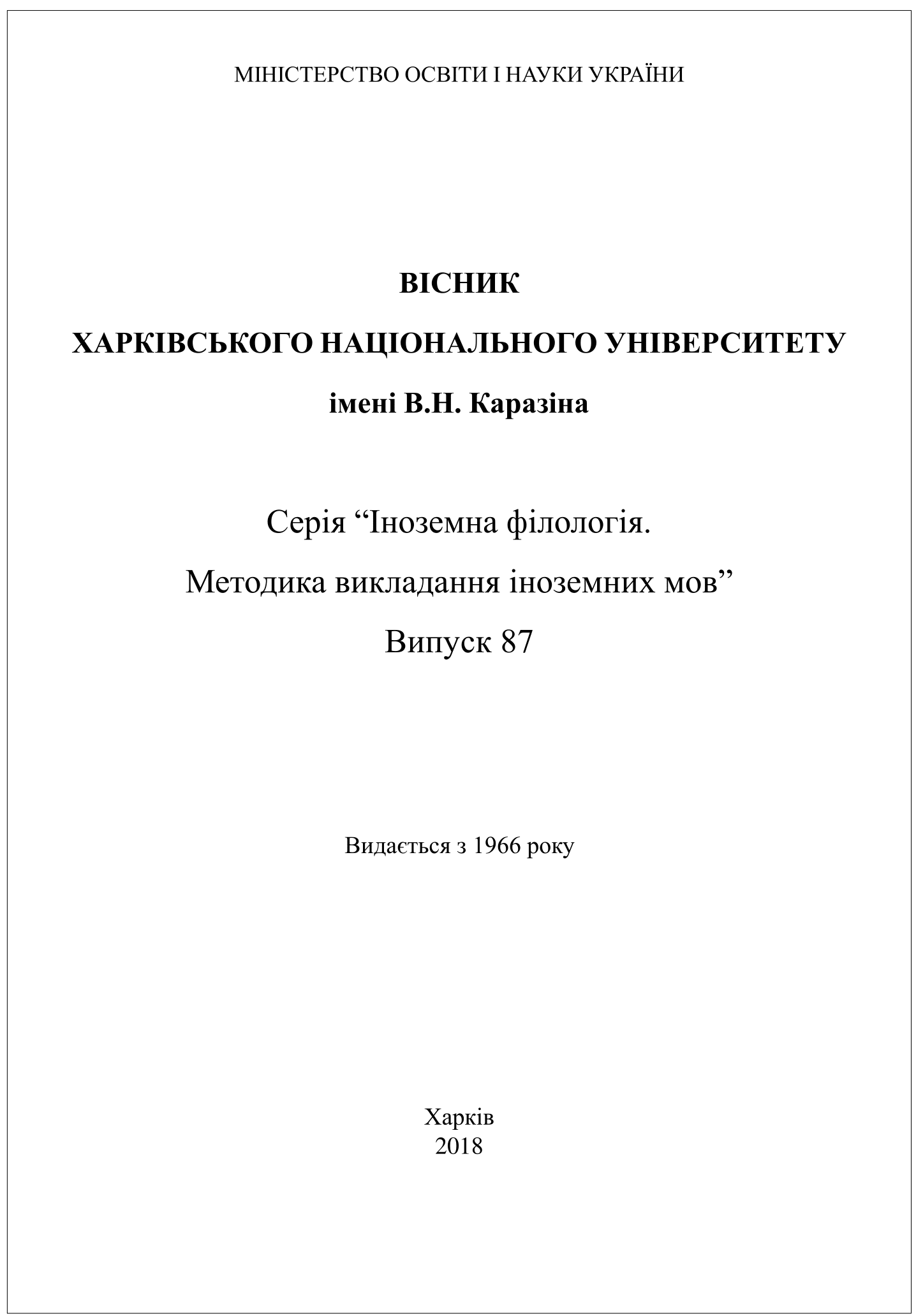Таблоїдність дискурсу американських президентів ХХІ століття
Анотація
Стаття присвячена аналізу концептуального і комунікативного аспектів сучасного президентського дискурсу США, який перебуває під впливом ЗМІ і якому притаманні властивості таблоїду. Таблоїдні медіа характеризуються спрощеним контентом, вона перевантажена емоціями, часто орієнтованими на агресію. Феномен таблоїдізації, спрощення і стереотипізації сучасної культури США простежується у публічному дискурсі президентів Джорджа Буша (мол.), Барака Обами, Доналда Трампа. Найбільш помітними характеристиками таблоїдності президентського дискурсу є спрощеність і стереотипність інформації, вживання маніпулятивних та нав’язувальних стратегій, висока емоційність, загравання з аудиторією, поєднання розмовної та літературної лексики, стилістична гібридизація. Таблоїдний дискурс президентів має на меті спростити реагування громадян, маніпулювати їх свідомістю і пристрастями, трансформувати їх світосприйняття й систему цінностей і у такий спосіб стимулювати виконання дій, нав’язуваних у дискурсі.
Завантаження
Посилання
Debrix, F. (2008) Tabloid Terror: War, Culture, and Geopolitics. New York : Routledge.
Gorіna, O.V. (2008) Kognіtivno-komunіkativnі harakteristiki amerikans'kogo elektoral'nogo diskursu respublіkacіv: Dis... kand. filol. nauk. [Cognitive-communicative characteristics of the American Republican electoral discourse. PhD diss.] Kharkіv (in Russian).
Grondin, D. (2012) The Other Spaces of War: War beyond the Battlefield in the War On Terror In: Grondin D. (ed.) War Beyond the Battlefield (pp. 5-22). London, New York: Routleedge, Taylor & Francis.
Donec, P.N. (2003) Teorija mezhkul'turnoj kommunikacii. Specifika kul'turnyh smyslov i jazykovyh form: Diss... . dokt. filol. Nauk [The theory of intercultural communication. Specificity of cultural meanings and language forms. Dr. pholol. sci. diss.] Kharkіv (in Russian).
Ivanova, Ju. M. (2003) Strategii rechevogo vozdejstvija v zhanre predvybornyh teledebatov : dis... kand. filol. nauk. [Strategies of speech influence in the genre of electoral TV debates. PhD diss.] Volgograd (in Russian).
Lesnaja, M.V. (2010) Topologija sovremennyh tabloidnyh SMI Rossii, Velikobritanii i SShA : dis... kand. filol. nauk [Topology of modern tabloid media of Russia, Great Britain and the USA. PhD diss.]. Krasnodar (in Russian).
Letts, M. (2009) Obama’s discourse of «hope» Making rhetoric work politically. In: School of Sociology, Politics and International Studies. Mode of access: http://www.bristol.ac.uk/medialibrary/sites/spais/migrated/documents/letts0409.pdf
McLuhan, M. (2003) Understanding Media: the Extensions of Man. Corte Madera : Gingko Press.
Prokopenko, A.A. (2016) Presidentskij diskurs Baraka Obamy: kognitivno-kommunikativnye aspekty. Dis... kand. filol. nauk [Barack Obama’s presidential discourse: cognitive-communicative aspects. PhD diss.]. Kharkiv (in Russian).
Spiridovskij, O. V. (2005) Koncept «terrorizm» v rechah prezidenta SShA Dzhordzha Busha. Real'nost', jazyk i soznanie: mezhdunar. mezhvuz. sbornik nauchn. trudov. / otv. red. T. A. Fesenko [Reality, language and consciousness: intern. interuniversity collection of scientific works. Fesenko, T.A. (ed)]. Tambov, 3, 279–281.
Shevchenko, I.S. (2015) Sootnoshenie informativnoj i faticheskoj funkcij kak problema jekolingvistiki [The correlation of the informational and phatic functions a problem of ecolinguistics] In: Cognition, Сommunication, Discourse, 10, 114–132. Available from http://www.sites.google.com/site/cognitiondiscourse/ (in Russian).
Zhabotynska, S., Shvets, O. (2017). Conceptual metaphors in multiple data: public speeches of Barack Obama and Vladimir Putin, 2014 – 2015. In: ICLC-14 Book of Abstracts (p.534). Tartu.




